|
People can be crazy and irrational both in and out of love. There’s a colossal stubbornness in any individual that can make meaningful connection of any kind absurdly difficult. The fact that we manage to muddle along in life in love in spite of all of this lies at the center of John Patrick Shanley’s Outside Mullingar. Next Act Theatre opens its 2018-19 theatre season with a production of the comedic drama featuring a quartet of talented Milwaukee theatre veterans. Set in rural Ireland, the play opens as a father and son muse on the passing of an old neighbor. James Pickering carries a whimsically playful apathy about him as the father...a man named Tony who is convinced that he hasn’t long to live. He fully accepts his impending death. It might as well casually written on a calendar somewhere. He has very defined ideas on how things will be handled after his death and he will not be moved. With Pickering’s charm, the character’s obstinance never comes across as cold. There’s a certainty about his performance that suggests a great depth worn from walking the same patch of land for many, many decades. David Cecsarini puts in an earthy performance as his son Anthony--a man working the land who keeps largely to himself. There’s some suggestion that Anthony might be suffering from a quiet bit of madness that his father keeps talking about. Cescarini does a brilliant job of playing caution against something far deeper in his psyche that he terrified to bring to the surface. It’s a very cleverly layered performance that casts some remarkable complexity into a character who could easily otherwise come across as being nothing more than socially inert. Carrie Hitchcock puts in a performance that is similarly layered in complexity. She’s playing the neighbor widow Aoife with a great warmth and stillness. Hitchcock’s thoughtful posture is highlighted by the very studied movements of a woman significantly older than she. Like Tony, she’s perfectly well ready for her own end and seems whimsically contented with the end of it all for her. Hitchcock plays at restful wit and wisdom. When it becomes apparent that Tony might not leave the farm to his son Anthony, Aoife casts some light into matters that prove to be quite complicated. There may be some question of what will happen to Tony’s land, but Aoife is absolutely certain that HER farm will go to her daughter Rosemary. Deborah Staples plays Rosemary--the patient woman living next door who stubbornly holds to ownership of small scraps of a potential future. We first see her meeting with Anthony. She’s smoking. He’s not. She’s trying to get him to open up to her. He keeps his distance without being rude. We sense a connection between them throughout the drama. As Anthony has much going on within his psyche, far more of the connection between the two characters is reflected in delicate shades of Staples' performance. Staples cleverly draws attention Rosemary's faith that she and Anthony possess an intimacy not echoed in the minimal time they have spent together over the years. Staples brings this subtlety to the stage while holding fast to the character’s great emotional strength. There’s a light and uplifting humor gliding around the gravity of the drama. Shanley’s extreme cleverness in the balance between wit and depression is expertly crafted here. A script like this is great. In the hands of an experienced cast that have worked together many times before in the past...it’s absolutely brilliant. Accomplished actor/director Edward Morgan puts it all together with a soft touch that allows shadowy and subtle moments to vividly hold together. It all happens on another beautiful Rick Rasmussen set. The rolling hills of Ireland are seen off in the distance. Lighting designer Aaron Sherkow smartly illuminates the background, giving it great volume that plays strange games with its relatively small physical size. (There’s a statement somewhere in there that echoes the overall theme of the play itself.) The earthbound foreground bears the well-worn, lived-in feel of a place that has served as a couple of different homes that rest across a road from each other somewhere in rural Ireland. Next Act Theatre’s production of Outside Mullingar runs through Oct. 21 on 255 South Water Street. For ticket reservations and more, visit Next Act online.
0 Comments
Brutal anger and resentment resonate through subterranean downtown as Shakespeare’s brutal Titus Andronicus descends into the Underground Collaborative. Voices Found Repertory lashes into one of Shakespeare’s most aggressive dramas with a delicate balance of drama and brutality. Young Maya Danks exudes honor and nobility in the title role. She wields respectable gravity as a returning Roman hero who has returned having defeated the Goths in battle. When offered rulership over Rome, passing the crown instead to Saturnine. Kyle Connor makes a striking contrast against Danks. Connor plays nauseating privilege with smartly hollow poise, carrying himself with a dignified pomposity befitting someone with all the posture of nobility but few of its virtues. Robin Lewis wears cold emotionless detachment in the role of the fallen queen of the Goths who is chosen to rule Rome alongside Saturnine as his wife. She and her sons plot revenge against Titus and the ugly violence, dismemberment and death commence. The intimate stage of the Arcade Theatre in the Underground Collaborative has the ability to bring the ugliness of bloody revenge uncomfortably close to the audience. Director Hannah Kubiak doesn’t shy away from the horror of it all, but she isn’t exactly embracing the delicious grotesqueness of it all. There’s just enough of it there to enhance the drama without distracting from it. Alexis Furseth is right in the heart of that drama as Titus’ daughter Lavinia. Furseth takes the character through quite a journey...playing it cool and confident as the play opens, then terrified after being the victim of rape and dismemberment before finally landing on desperation as she tries to communicate the identity of her attackers without the benefit of hands or a tongue. Furseth has such compelling attraction in the role. Her performance makes one wonder why Shakespeare didn’t make Lavinia the center of the story. Her inspiring struggle is much more compelling than all of the grim revenge that the drama where so much of the rest of the script focuses on. Of course, victims of rape stepping forward and naming their accusers have added resonance with the emergence of the Me Too era. Furseth’s transformation over the course of the play is inspiring even if the play spends far more time telling other ends of the story. Teddi Jules Gardener has a strong leading male quality about him in the role of Shakespeare’s triumphant hero Lucius--son of Titus. Gardner’s valiance as a man of honor looking for revenge hangs quite proudly around the center of the drama. Also serving with great, heroic poise on the side of Titus is the magnetic Jessica Trznadel as Titus’ brother Marcus. Trznadel carries herself with a steadfast grace and poise in poetry as one of the honorable ones. As with any production of Shakespeare, some of the most striking performances slide in around the corners of the central plot. Of particular note here is Brittany Faye Byrnes as the treacherous Moore named Aaron. Aaron is kind of a marginal character in the plot, but Byrnes makes quite an impression--gliding through the poetry of villainy as deft as a perfectly balanced razor. She and Furseth cast some dazzling light into the corners of a satisfying production. Voices Found Repertory’s production of Titus Andronicus runs through Oct. 7th at The Underground Collaborative on 161 W. Wisconsin Ave. For ticket reservations and more, visit Voices Found Online. Tonight they have a special hangout-with-the-cast fundraiser at MobCraft which looks like a lot of fun. They'll be there after tonight's show from 10 pm to midnight. Writing is weird. A short while back three of us had a chance to stand around talking about it. This was made possible by a generous donation to The Small Stage. It’s kind of a departure from a blog strictly about theatre. My first officially donor-sponsored blog comes courtesy of Boozy Bard's A Christmas Carol: RAW. The drunken Dickens goes on a 5-show tour of local venues Nov, 23-Dec. 21. The money donated for this entry has helped fund a lot of other coverage for local theatre in this blog, so I’m more than happy to stand around in a room with a couple of other writers talking about writing Here we are: Aaron Kopec is the artistic director at The Alchemist Theatre where he strives to provide fun and exciting entertainment. He occasionally writes, sometimes directs, often builds sets, intermittently designs lights and audio, and most often repairs leaks and other ailments of the wonderful old building that houses The Alchemist. His past works are all listed at the theatre website under "past shows." He is proud of all of them for one reason or another but mostly for all of the spectacularly talented people he's gotten to work closely with and the amazing audiences who have kept the doors open for over 11 years. www.thealchemisttheatre.com Jacob Woelfel is an unpublished author currently querying one of a few finished manuscripts. He's written for The Variety Hour Happy Hour, Sketch 22, and PARTY!, and he's assisted in editing Pepper's Ghost and PUNK IS DEAD! at The Alchemist Theatre. Russ Bickerstaff (that’s me)--I'm a theatre critic and writer of short fictions. (I also recently picked-up work as a comic book critic. Weird.) I live in the south side's Crisol Community with my wife and two daughters. My short fictions have appeared in over 30 different publications including Hypertext Magazine, Pulp Metal Magazine, Sein und Werden, and Theme of Absence.
Trust Me: There's an Audio Recording It was the middle of the day. There was a street festival not far from where the three of us had gathered. It was a casual mood conversation. It's been captured on audio...and I seem to remember that a lot of it made sense, but the audio file that I recorded it on is a bit surly. It refuses to be edited. I intend on getting it uploaded to this entry once I've had a chance to edit it. In order to do so, I'm going to need a scalpel, two paperclips and a nuclear accelerator...or I don't know...maybe just the right audio editing software. Anyway there we stood: three guys talking about writing for a couple of hours...then went to work asking each other questions via email about...writing...these are those questions. Questions From Me to Aaron: ME: A lot of people would envy your ability to work on something from conception to completion. You work on a lot of other elements for a show beyond the script. Do you ever find that other elements of production inform on and mutate a script the you may be working on? AARON: I'm usually lucky enough to know at least a few people that are interested in a role that i'm talking or thinking about early enough that I can write for specific actors and sometimes discuss how they would want to play a character and try to incorporate ideas that they might have. ME: You've done some incredibly elaborate plot structures for the stage in the past. I would imagine there have been scenes and ideas that have had to get cut here and there. What's that process like? Have there been any notable scraps of ideas that you're waiting for the right opportunity to use or does the scriptwriting all fuse itself into what you're working on for any individual show? AARON: Sometimes scripts get nearly completed and maybe even to the point of some "per-production" before being "scrapped" or before it evolves into something else. A few years back the NYC Trilogy was a combo of things that had been disassembled from a possible "throughout the building" production and reshaped into three "for the stage" shows. ME: So many anti-heroes in your work. Dracula. H.H. Holmes. uhh...Andy Warhol. Unless I'm forgetting something, I don't ever recall any totally altruistic heroes in your work. What's your particular fascination with darker characters? AARON: Because every character is just me? I don't really know if I have a good, actual answer for that without therapy. I think we all love a good antihero. A good villain that we can, maybe unfortunately, relate to. And when those characters manage to find moments of redemption of bits of beauty, that may feel even more hopeful than a heartwarming, feel-good production full of characters that we all want to be friends with. Questions From Jacob to Aaron: JACOB: After a show has ended and you think of your characters, do you visualize them as the actors who played them? When you see the actors, do they remind you of the characters? AARON: Some, certainly. In some ways David Sapiro will always be "Eddie Valentine" and April Paul will always be "Izzy" from "Another Tale of Eddie." Liz Whitford has played countless roles here but she will always be a bit more "Margarite" from "Faust" because I still use the notebook her character wrote her daily journal in full of love notes about "Johnathon" who was played by Grace DeWolf. JACOB: You've always had a great handle on dialogue. I remember you once telling me that you prefer to dance around what characters are really trying to say. Tell me a little bit about how you go about doing this. Is it something you plan for? Or is it something that happens organically? AARON: I TRY to write how we actually speak while also paying attention to rhythms. This means that I write dialogue rather poorly, actually. Lots of fragmented sentences and phrases that begin half-way through a thought combined with long-winded speeches. But I really think that is how most folks talk and how conversations actually happen. Lots of interjections and interruptions before someone just plows though a story wrapped around some central core of what is being discussed. JACOB: Do you tend to write with a message in mind? Many of your plays seem to have a clear point. If so, when do you discover that message? Is it something you find halfway through? Or is it something you know right away? If it is—how much does that message affect the decisions of your characters? AARON: Seems to me that if you try to stay true to characters and let them live, a message, so to speak, will just naturally emerge. For me it is important that the message doesn't get crammed down anyone's throats. Medicine in the mashed potatoes. And I also try to stay aware of creating a bit of a "pop rock song" with my shows so that they are maybe just open enough to interpretation that you can find what you need in them. Yeah, there are specific thoughts in mind that come from specific events or ideas that are very real to me, but you don't need to know what they are. You, as the audience, have probably had similar events or ideas that you can relate to it. Questions From Aaron to Jacob: AARON: I think it's interesting to know how you find resources to "bounce ideas off of." Other writers who are starting out and have novels in them.... can you share some of the online resources that you've discovered where folks can share and interact and get decent feedback? JACOB: There's many communities on Reddit if you look hard enough. I won't recommend a specific one because your results will vary depending on what you're working on and what kind of feedback you're looking for. Discord voice and chat channels work in a more immediate way for feedback, but again there are so many communities it's hard to recommend just one. It's like any other resource, even within these communities, you have to find the people who have the input you find most helpful. And those aside, the most important resource is everyone you know—and people you don't know. If your pitch can hold the attention of a complete stranger who has no idea who you are or what you're doing, it's probably an idea worth your time. AARON: You have given me some really great writing advice... things that built my confidence and helped structure things in ways I've not considered before. Again, to writers who are "finding their way" is there any "advice" that you'd offer to them that isn't the cliche' "just write?" If someone feels that they have a "novel length story" in them.... what would you tell them to consider? It's such a big journey. JACOB: It's tough to give a single answer that applies to everyone. For me, learning about basic structure helped a lot. Scene structure in particular was big, and character motivations were bigger. Most scenes are going to be carried by a character and what they want or need. If it's just a bunch of stuff happening, it's hard to get invested or care. I wish I'd known that before I wrote an entire novel where the main character didn't really want anything. People would ask, "what is your book about?" And I would have no answer. It was about a bunch of stuff happening to a guy because I thought it would be cool. So my answer would usually be some rambling word soup of events that I thought stood out, but really it wasn't about anything. Please note, it can be done. Look at American Gods. Shadow is just sort of a wanderer, and it works. There's always going to be exceptions, but that doesn't mean you shouldn't take the time to understand the rules. As for a novel-length idea and how to tackle it, if you haven't written something novel length before, I would absolutely recommend working on some shorter stories first. Get into the habit of finishing things. Start small, something you can complete in a sitting. Then do something a little bigger, something that might take two days. Do it again, and again, until you're completing pieces with ease. "But Jacob, I only want to write this novel." You can do that. Each short story can be part of it. Think of it as exploratory writing. I've got dozens of short stories within the worlds of my books. Some of them make it in. Most don't. But they were all worth doing in building what the eventual story would become. Again, please note that you can jump right into writing an entire novel having written nothing else. It's possible, but I wouldn't recommend it. AARON: Same final question I asked Russ.... as someone who considers every word and understands pacing and the silliness of bravado... favorite "guilty pleasure rock song?" JACOB: REO Speedwagon's Roll with the Changes. Questions From Me to Jacob ME: Longer works of fiction can become kind of a lens through which you see the world. How does it feel to have an intimate connection with these very involved worlds you're writing...worlds that few others have been able to be exposed to? JACOB: I hadn't thought much about this before. I think, above all, it's a little intoxicating. The longer I work on something, the more real it becomes. Sure, it's all made-up nonsense, but it's made-up nonsense I live with, and until I've moved on to that next giant project, it never goes away. In times when I'm most active, it's easy to lose days. It's like going somewhere else, so no matter where I am or what I'm doing, I'm stuck with these characters. It can happen with shorter works, too, but it rarely outlasts the story. As if that isn't real enough, having a small group of interested readers to bounce ideas off of amplifies that effect. Even if it's only three or four people, being able to talk about all of these characters and what they're doing, what they will do—there's nothing else like it. ME: There are those who make...lots of money writing novels. The really successful novels. It can be really strange to see what the mass public turns into a best-seller. Which author's/novels' widespread success do you find most perplexing? JACOB: Tough question. I swear I'm not weaseling out when I tell you there aren't any. Don't get me wrong, I dislike loads of novels. You couldn't pay me to read a lot of what's out there, but I still get why these authors are successful. Sure, it's not always clear. Fifty Shades of Grey is bad, but the appeal is obvious. Twilight, too. These authors know their audience and they write/promote accordingly. From what I can tell, a lot of being a successful author has little to do with how good of a writer you are. There's probably countless masterpieces out there that'll never see publication because a great writer gave up. The industry is brutal and unforgiving. You have to convince the gatekeepers you're worth it. That takes time and a ton of rejection. Most importantly, it takes something they think they can sell. I hate that I feel this way, but I haven't seen anything to indicate otherwise. ME: I find that the more elaborate unfinished stuff tends to hang out around the corners of my consciousness while I'm not working on it. What has your experience been like having characters, characters' relationships and whole worlds on hold while you hold down a day job and the rest of your life? JACOB: I got a little into this with the first question. They don't go away. If anything, they're hanging out, waiting for me to finish that phone call. Whenever my mind wanders, good chance I'm thinking about them and what they're doing. If I want to write but can't, I'll often think of where they were when I last stopped. What would they do in this situation? Where are they going? What do they want? Is that still clear? Wait, how am I home already? I drove this whole way? You get the idea. Questions From Aaron to Me: AARON: With the whole "where do ideas come from" discussion... I know that having helped raise two souls that some stories come from childhood wonder that is now part of your life with two little ones. Do you have any stories that were inspired by the wee ones? ME: Yes. When kids’ vocabularies are only starting to download, they’ve got a really interesting relationship with the language that has inspired stories here and there. There’s one in particular, though...when they were babies, my sister-in-law gifted them a little yellow hand-made plush gnome that I created a whole backstory for. The Strawberry Banana Gnome ended-up being the central character of “Fruiternal Quest”: a brief piece that was published by Raven Warren Studios a while back...in an anthology called Winning! A Guide to Games That Never Were. It’s still available in paperback for $6 on Amazon. AARON: Unrelated to your "writing" but a big part of who you are for this community... as someone who reviews a LOT of theatre, do you ever get the "bug" to write scripts? ME: I find myself thinking in dialogue between characters frequently enough that I’ve written a few scripts. MANY years ago I had a few shorts staged in a few Milwaukee shorts programs. There’s a longer one-act that I’ve written that I still think would be fun to stage...a fictional conversation between artists Steve Ditko and Eric Stanton in a tiny, little artist’s studio in midtown Manhattan in 1962. AARON: We touched on ridiculous pop songs and "Bon Jovi" in our talk as well as "guilty pleasures." I'd be curious to hear any "guilty pleasure songs" that you can't help but turning up when they come on. ME: There is no pleasure that is not guilty. I don’t actually listen to the radio, though. Occasionally a song or an ad jingle from 10 or more years ago that I never really paid much attention to will be rolling around in my head. I’ll track it down and play it to death. It’s kind of like the ear-worm version of NIGHT OF THE LIVING DEAD...these things come back...overplayed pop songs I never really paid attention to by Def Leppard or Nirvana or Blues Traveler or Bowling for Soup or whatever. I look them up and listen to them a few times so that they can die again. (And believe me...they WANT to die.) So I help play them out by doing a search on YouTube and letting them fade out. Questions From Jacob to Me: JACOB: As someone who writes 1000 words daily on something brand new, how different is your process when you decide to tackle a novel? Could you go into depth about what that process looks like? ME: When your favorite tool is a hammer, everything looks like a nail. Typically it all starts somewhere around 1,000 words. From there it might be edited down to something far shorter or expanded into something longer. Occasionally a few ideas from the past stick together in weird ways and I’ll set them aside to go through the narrative fusion needed to turn them into something bigger, but I can’t think of any longer work that I’ve ever started that hasn’t originated as something shorter and evolved into a longer piece. The shorter works are where inspiration interfaces with text for the first time. Those longer works are more of a process of editing and expanding. JACOB: Of all the pieces you've written—which is a ton—which one stands out as the work you love most? Which do you dislike most? ME: I’ve written over 1,000 pieces. Honestly it’s all a big, incomprehensible garble in my rearview. The one that sticks out at me that I keep meaning to expand into a larger work is TOUPEE FOR OUR SINS: THE JOURNEY OF THE HELL TOUPEE. The discarded hair of a misshapen demon wanders the earth sucking souls through the balding scalps of 7 sinners in 7 chapters based on the 7 deadly sins. I’d submitted it as a short story to a few different publications who all turned it down. (I know. I know: imagine that...) It’s just such a weird idea and such a weird departure from so much of the rest of what I write that I find it appealing. As far as my least favorite...uh...there are so many that I’ve forgotten about. My least favorite is probably forgotten lurking around somewhere filed away with all of the rest of them. JACOB: What is the medium you're most comfortable writing within and why? I ask because it seems to me you're well rounded, writing articles, short stories, novels, poetry, and everything in-between. Additionally, how do you choose which medium fits bet for each story? ME: Free writing is the most comfortable. When an idle keyboard is casually hanging out in front of a blank word processing window it could be anything. Start writing it and it starts to get defined into form and genre and then...there are all kinds of expectations that start to filter-in. I’m most comfortable before the weight of expectations starts to descend on the emerging text. Of course, with a review or an assigned piece for publication there isn't the luxury of ambiguity, but there's still that hazy headspace early on where I'm just writing reactions into a journal prior to deciding where the finalized review is going to be and THAT'S a bit more comfortable than the rest of it. --- Aaron's next play is Punk Is Dead. It opens Oct. 11 at the Alchemist. This blog has been generously sponsored by Boozy Bard’s A Christmas Carol Raw. The show arrives at the cozy subterranean theatre at the Brumder Mansion Bed and Breakfast November 23rd. That's the start of a 5-show tour that runs through December 21st. Click the banner below for tour dates, locations and more. Director Ray Jivoff brings a beloved classic to the stage of the Cabot Theatre as The Skylight presents a staging of the musical Pippin. Actors onstage play actors in a troupe telling the tale of the son of king Charlemagne lends style, intimacy and charm to a relatively large stage. In the carefully rendered informality of it all, Jivoff and company make a big stage seem small by embracing its immensity. With Pippin, they've made a show that's just big enough to be small. It’s kind of a strange paradoxical dichotomy. The musical came out of an early ’70s where there was radical commercial experimentation even in the mainstream arts. The style is so very specific to the era, which always makes it kind of weird to see this sort of thing brought the stage again. So many people remember it from high school. It was originally developed as a show for students at Carnegie Mellon University. It’s perfect for that sort of production. Coming of age. Loss of innocence. Trying to find one’s place in the world. These themes are right at home in a university or high school setting. Brought onto a bigger stage, the show has an opportunity to play on some of the show’s more abstract, existentialist themes that deal with the nature of messy life-versus-tidy narrative. Jivoff and company do a good job of playing on the more universal notions with a circus-like atmosphere cast against a bare stage. As Pippin, Lucas Pastrana is radiant enough to capture attention and hold it amidst all of the war and sex and love and responsibility that plague the character. Even with every spotlight cast on him, Pastrama seems like a nice guy. This is always a lot more difficult than anyone gives it credit for being. Pastama’s niceness goes a long way toward lending the overall production some warmth and bringing emotional immediacy to a bare stage that could otherwise feel cavernous. True to the original inspiration of the show the stage is pretty empty. Scenic Designer Keith Pitts has been allowed to get strikingly clever with the minimalism. We get steamer trunks that are rather creatively used for various set pieces. One in particular falls out into a beautiful picture frame that is positively surreal. Steamer trunks aside, we get lots of scaffolding and folding chairs and things of that nature. Kärin Simonson Kopischke’s costuming is fun as well. Knights wear the shining shoulder padding that appears to be pulled straight out of the NFL. Patterns and designs are ornate enough to give a sense of place on a largely empty stage without being so overpowering that they stifle the choreography. (And there really is one hell of a lot of that.) The Skylight puts together a sharply distinctive visual end of the world of Pippin. Really nice production design. Jason Fassl brings it all together with a lighting design that brings the warmth and emotional immediacy of the show even as far back as the balcony. And then...there’s the music. Having been from a very specific end of a very specific generation, musicals of the late ’60s and early ’70s feel to me like the natural default position for a stage musical. Stephen Schwartz’s music for this show always felt very nondescript to my ear. The distinct style of Broadway music from this era feels like so much musical wallpaper to me. Jivoff and the Skylight have managed to make this feel fresh and emotionally engaging in spite of this, so I can only imagine how good this feels to someone who truly loves the era. Part of the success lies in overall presentation. Part of it also has to do with the fact that there are some really talented people even in around of the edges of the production. I’m drawn to the edges of everything with people I’ve seen on smaller stages. It’s nice to see Stephanie Staszak in a big musical like this...particularly where there’s a lot of very precise choreography. She’s good for that. Becky Cofta is capable of delivering an irresistible and irresistibly comic sensuality to the stage even from a great distance. Here she is having a lot of fun with that and that fun transfers to the audience quite well. Closer to the center of the stage we have Todd Denning as Charlemagne himself. Denning hauls in quite a bit of stage presence to develop a kind of gravity that the role requires. It turns out Denning isn’t only a very intense Shakespearian actor. The guy can sing. As always, he’s got a very sharp wit, too. The character of his scheming wife Fastrada feels a weak. To her great credit, Catherine Hausman reaches into the role and pries personality from the jaws of dullness. Natalia Ford lends humanity, compassion and patience to the role of Pippin’s love interest Catherine. In the center of it all is Crystal Drake as the Leading Player hosting the show. She’s got a classy precision about her that she has that mix of charisma and steely, cold showmanship that the role really thrives on. She carries it all with an emotional center. There’s a great depth about it. A great sense of power and intensity the rests at the heart of the show. The Skylight’s production of Pippin runs through Oct. 7 at the Cabot Theatre in the Broadway Theatre Center. For ticket reservations and more, visit the Skylight Music Theatre online. It’s About Love J.J. Gatesman’s romantic stage drama The Beauty of Psyche is about many things. There is danger and sacrifice. Nearly every character is in WAY over his or her head for one reason or another. There's real drama in that. More than anything, though, it’s about love. Staged the Underground Collaborative for one more weekend, Gatesman’s adaptation of the classic story of Eros and Psyche gazes into love from many different angles. Stein’s Challenge In the role of Psyche, Abigail Stein plays a woman who must fall in love with a voice and a silhouette. What’s worse: the woman she’s playing has been taken captive by a monster. So there’s a whole...Beauty and the Beast/Stockholm Syndrome thing going on between the God Eros and the mortal Psyche that the script has to overcome in order to ultimately deliver a very compelling romance. We get a brief introduction by the intoxicatingly excited Kellie Wambold in the role of Pan. Aside from that, a crucial early stage of the play requires that Stein play romantic lead to a shadow cast across a sheet and the voice resonating from it. (That’s Eros as played by Josh Decker.) There’s novelty in the set-up between a divine silhouette and a woman that’s interesting to watch, but it must be incredibly daunting for an actor to try to convincingly fall in love with the shadow of her captor. Stein deftly renders the title in her performance. There’s an earthy, organic beauty about her...clever expressiveness in her face and her voice that connects the audience to romantic love with a god. So she doesn't seem at all like a victim even though it's essentially what defines her early on in the story. So Stein is beautiful and a prisoner without being a victim. Stein’s able to do this without a hint of exaggeration, which is as a huge accomplishment for her, Decker AND Gatesman. Romance is incredibly difficult to bring across onstage. Love is complicated enough without having to worry about blocking and lighting and all those things that make the stage an unnatural place. Gatesman finds the perfect pacing to keep an interaction between god and mortal believably moving into greater and greater intimacy. It feels totally natural when she finally tears down the sheet and embraces him. Decker does quite a job as well. He’s playing a god who is totally burdened with his own divinity. He feels real romantic love for the first time, but he has NO idea how to deal with it. This is a god dealing with emotions of and for a mortal...so he’s GOING to come across a bit beastly. There are all kinds of direction this could be taken in that would distract from the essence of the romance. To his credit, Decker holds steady and allows the moment to render itself around him...which is exactly the way a divine god would likely handle a situation like this, so it feels really, really believable. Sympathy for the Antagonist Audrey Thompson-Wallace plays Eros’ mother--listed in the program as “Rose.” She love her son and knows that he is falling for a mortal. She wants to spare him the heartache of falling in love with something so fleeting, so she tries to keep him from her. When we first see her, there’s an icy cold superiority about her, but Thompson-Wallace radiates warmth beneath the brutality. Gatesman allows Rose and Eros mother and son time that heartbreakingly renders the maternal love that is forced against her son’s romantic love of a mortal. Again--Gatesman does a really good job with the overall pacing here, allowing Eros and Rose just enough time onstage to firmly establish the conflict between Rose and Psyche. She's not domineering. She's caring. She's also cold. (Nobody's perfect.) And There’s Other Love Eros and Psyche get separated. In order for Psyche to reunite with him, she must embark on a quest for a few things. The impossible feats that she’s engaging in aren’t really the focus of the story, so they don’t get a whole lot of time onstage...what’s important here is that she learns to find the love of friendship with Pan and her ants. (It’s hard to explain...just see the show. It’s cool. Trust me.) Wambold is whimsically exasperating as Pan...so the real challenge for Psyche is to find a way to relate to her in order to collect what she needs to reconnect with the god she loves. So we have romantic love, maternal love...love for companions. There’s also real love for storytelling going on here. It’s a show in a basement that’s been lovingly crafted for very, very small audiences. There’s a deep intimacy here that seems to be embracing love itself from a cozy, little basement downtown. Romance isn’t done nearly enough on the small stage, but The Beauty of Psyche goes beyond romance. It’s a play about love. Gatesman and company do a really good job of bringing that love out of the shadows and into the hearts of anyone interested in showing-up. A Fool’s Enigma’s The Beauty of Psyche closes this weekend at the Underground Collaborative. There are just two performances left: Sep. 14th (Friday) and Sep 15th (Saturday.) For ticket reservations and more, visit the show’s page on Eventbrite. Writer Matthew Konkel and Director Tom Marks bring a multi-tiered retro-spoof down to earth as Milwaukee Entertainment Group presents Jake Revolver VCR Repairman. The show has a cast of actors playing actors from a fictitious live radio show. A vibrant cast brimming with contrasting energies deliver a gumshoe detective spoof to the cozy subterranean space beneath the Brumder Mansion. The hardboiled detective spoof has a long history. It might even go back as far as the authors who defined the genre in the ’30s. One can feel the humor radiating out from the edges of the works of Dashiell Hammett and Raymond Chandler. With this one, Konkel decides to be deliberately ambiguous with the era in a sci-fi mashup set in a hazily present era. Phil Stepanski is charming as detective-turned-VCR repairman Jake Revolver. In a clever duality, Amy Geyser plays a shy voice actress who transforms into a sultry femme fatale named Dearly Leading. Ms. Leading has hired Jake Revolver in a caper involving a fabled VCR that, according to legend, has mysterious powers over reality. Aiding Revolver in his task is his brilliant and brilliantly quirky assistant Top Load played with dizzyingly effervescent cheeriness by Hayley San Fillippo. She’s part of an eclectic supporting cast that includes a reasonably tall Jason Nykiel as a couple of very short characters, Pam Scheferman as a detective who is trailing Revolver and the distinctive voice of Jim Donaldson in a couple of different characters influencing Revolver from the corners of the script. Konkel’s humor is a comically twisted torture of the prose styles of Hammett and Chandler. The comic surrealism of Konkel's dialogue threatens to overtake the comedy at nearly every turn. Sometimes the comedy is going so far in the direction of The Weird that it seems to misplace the comedy altogether. Even when it occasionally drifts away from outright comedy, Jake Revolver VCR Repairman is a pleasantly bizarre mutation of traditional spoofery that nearly transforms into its own kind of meta-comic adventure. (So it’s weird. And that’s cool. Even when it's not funny.) But there IS some really inspired comedy here. The best of it comes from Laura Holterman and Marcus Beyer as generic ad couple Ginger and Sage in a series of commercials for existentially scented candles. Beyer has the voice of a classic radio announcer. Holterman has the presence of the classic domestic woman found in so many mid-twentieth century TV and radio commercials. The two play a couple so lost in the effect of the product they’re selling that they don’t seem to notice how truly imbalanced they are psychologically. There’s really deep satire going on with Ginger and Sage that takes up exactly the right amount of space in the larger program. Beyer and Holterman are comically magnetic. When not in character as Ginger and Sage, Holterman and Beyer are a couple of casually oblivious consumers. Early-on they can be seen in the background eating what appears to be an entire meal. Onstage. While the action is going on. It's difficult to express how weirdly cool that is. The rest of the cast has a really friendly dynamic that’s fun to watch. Geyeser can be seen in character reading a copy of Smithsonian Magazine. Others roam about at times checking out scented candles and rotating through various nonverbal exchanges. They’ve rendered a really complex, unspoken dynamic between them. Director/Sound Effects Guy Tom Marks has done a good job of bringing both layers of the narrative to the stage...only allowing them to conflict with each other when the script calls for things to tumble about between the actors, the actors they’re playing and the characters they’re playing. It all blends and blurs together in a very satisfyingly surreal trip to a performance space under a mansion on Wisconsin just outside of Marquette. Milwaukee Entertainment Group’s Jake Revolver: VCR Repairman runs through Sep. 22nd in the Subterranean Theatre at the Brumder Mansion on 3046 West Wisconsin Avenue. For ticket reservations and more, visit Milwaukee Entertainment Group online. A 90-Minute Rock Monologue The Cold War. Duality. Gender Identity. Sexuality. Pop culture. Wig-based existentialism. Hedwig and the Angry Inch is about so many things that it’s easy to forget that it’s one guy onstage delivering most of the story. We get the character’s entire biography between and within a series of songs and a few costume changes. There’s a lot of decoration, but at its heart, it’s still just one person’s story. It's less of a rock opera and more of a rock monologue. This month All-In Productions stages the monologue in a dreamy, fully-rendered fugue featuring a full band in full costume. 90 minute slips away without intermission. Then there’s applause. Sometimes it Can Feel Like An Audition An intimate show in an intimate space can connect an audience with a performance like nothing else. There’s that direct fusion between material, performer, characters, audience and venue that can be transcendental. Or it can feel a bit like an audition. In the role of Hedwig Brett Sweeney is a very talented vocalist. He’s a very precise actor. There’s a very thoughtful symmetry to his construction of the complex psyche of a personality caught between genders, cultures and so much else. Somewhere along the line, though it starts to feel like a really elaborate 90-minute audition. I don’t know...maybe it was the precision and careful emotional composition of it all. Maybe that’s what gave me the impression. Try as hard as I could to shake, it, the audition impression stuck with me throughout the entire show. Sweeney is an immensely talented performer. The role he's auditioning for is really interesting, It doesn't feel like Hedwig to me, though. Rock vs. Musical This is the 3rd or 4th production I’ve seen of the show. Hedwig always felt like a powerfully...almost explosively fragile character to me. Hedwig is caught between so many dichotomies...so many opposing charges from opposing forces that it feels like the whole thing could detonate at any time. There’s a heartbreaking vulnerability in that. Years ago I saw former Milwaukee actor Jordan Gwiazdowski in a staging of the musical on a smaller stage. He openly embraced the character’s vulnerability. Sweeney doesn’t exactly avoid Hedwig’s vulnerability. (It would be really difficult to do so.) Opening night it didn’t feel to me like he was embracing Hedwig's fragility on an emotional level, though. Sweeney carefully places the character’s tenuous fragility into a well-proportioned performance structure that approaches a kind of technical perfection. When rock is true to rock, though...it isn’t about perfection, though. It’s messy and ugly and passionate. That’s the way it feels most natural to me. Sweeney’s Hedwig Over the course of the show, it’s difficult not to appreciate the Hedwig that Sweeney is presenting here. He’s wearing the role like a complex mask...rendering a cold character of great strength. Sweeney’s Hedwig has powered through a lot, He wears awkwardness and imperfection like its own kind of armor. It’s all a part of the show and we’re all a part of it. It’s not a show without an audience...so we’re there to complete the equation that gives this Hedwig meaning. Sweeney’s Hedwig feels almost...sinister. Vulnerability is bent and twisted around a resilience that is still feigning a kind of fragility. Sweeney’s not betraying the spirit of the character, though. So we learn to sympathize with the sinister artifice. It’s a very clever approach. Sweeney's Hedwig is a cunning anti-hero. There's a really interesting depth to it. It's good. I just wish I liked it more. I guess I’m still haunted by the phantom of Gwiazdowski’s much more openly emotional punk rendering of the character. The Rest of It There’s a lot going on in the space around Hedwig. Director Robby McGhee has fostered an environment that allows Hedwig a cleverly-textured backdrop. The title character’s name towers over everything in the background. There’s the full set-up of a rock and roll show. On first glance, there's nothing much there. Just a band. It’s the little things, though: a couple of cans of cheap American lager rest not far from what appears to be a full bottle of vodka resting in a mic stand. The band has a scrappy, scavenged ragtag look about it. We get the feeling that every one in the band has a story every bit as fascinating as that of the lead singer. Ken Marchand is a saddened, tortured-looking animal in white face paint resting behind a drum kit. Guitarist Joey Chelius (of the local ’80s alt pop band Bueller Bueller) seems to be tightly patched together from various parts of other musicians. Lights, costuming and overall energy give the impression that the whole band has been through a lot...and no one has been through more than backup vocalist Yitzhak. Love Aggression Hedwig’s love can come in the form of abuse. No one is more abused than Yitzhak, who is played here by a very aggressive and emotionally combustible Lydia Rose Eiche. She’s always there in the background. She knows that if she gets too close, she’s going to lose Hedwig. Over time she begins to wonder if it’s worth it. The character isn’t given much room to relay all of this to the audience, but Eiche does a brilliant job of bringing it across. She's living and breathing the kind of rock and roll that feels real to me. She’s a much-needed counterpoint to Sweeney’s perfect cold poise as Hedwig. There’s a moment between her and Chelius that ushers-in one of the most aggressive moments in the show. It’s a surprisingly satisfying exchange given the fact that it’s not terribly central to the plot. The best moments of this production lurk around in the corners like cans of cheap American lager. Those moments speak to something beyond the moment...like tortured visage of a drummer in white face paint staring blankly into the haze of the stage. There's something there that's bigger than what we're seeing. All In Productions’ staging of Hedwig and the Angry Inch runs through Sep. 15 at the Next Act Theatre on 255 S. Water St. for ticket reservations, visit All In online. Josh B. Bryan’s special blend of old-timey radio variety returns to the Astor Hotel bar this month as Cabaret Milwaukee presents another staging of The Jealous Revolver. Bryan, Amanda J. Hull and Jackie Benka have put together a classy, little crime drama peppered with bits of history and acts of variety in an old-style live radio format. Michael Keiley hosts the show as dapper emcee Richard Howling. The variety mixes a little singing with a little drama and a little dance. This month’s offering includes jazzy vocals by Cameron Webb, who opens the program with a powerful Billie Holiday tune. Dance comes later-on in the form of Danielle Joy Webber performing some impressively intricate tap. Once again...it’s not that often that genuine tap gets featured on the local theatre stage. Seeing a lone woman perform the lost art onstage has an irresistible novelty about it that can make tap dance almost seem like something new. Cabaret Milwaukee puts together a dual-tiered retro vibe for its shows. The Jealous Revolver is a 1930s gangster crime serial that’s being performed live on the Howling Radio hour...a fictitious radio program set during World War II. This time around the drama outside the drama has a very passionate and compassionate Samantha Paige Deibler as USO Founder Mary Ingraham squaring-off against Deborah Oetinger as a proponent for the newly-founded Women’s Army Corp. Women looking to define themselves in a new era take two different positions on the emerging feminism. The show features an all-new trio of Howling Singers. Lindsey Willicombe, Vanessa Schroeder-Weber and Marina Dove perform classic and classic-sounding jingles for Pabst and Cabaret Milwaukee sponsor Twisted Path Distillery. The story itself features a stylishly imposing Kerric Stephens as crime boss Vic Marconi who finds himself in a bit of a predicament with loose cannon named Tony (a very charming Dennis Lewis.) Dealing with him could prove to be difficult as his closest confidant is Tony’s older sister Stella (played with intensity by Dora Diamond, who also appeared in the same role of the original staging of The Jealous Revolver a few years back.) Aiding Vic in eliminating the problem is a crooner named Joey who is clearly in over his head. He’s looking to make a bit more money for himself and his girlfriend Vivica (who also works Vic’s club.) As Joey and Vivica, Adam Qutaishat and Michelle White provide a conflicted romantic counterpoint to the far more explosive conflict between Vic, Tony and Stella. It all plays out in an intimate, little bar in the historic Astor Hotel. It’s a classy evening out on the east side accompanied by Joe Makovec on keyboard and Allen Russel on violin. The old-timey, early 20th century atmosphere is something that Cabaret Milwaukee has had plenty of experience putting together over the years. It’s a complicated variety show that glides across the bar with smooth style. All of the elements of variety are juggled quite well. Cabaret Milwaukee’s The Jealous Revolver Episode One runs through Sep. 14 at the Hotel Astor on 924 E. Juneau Ave. For more information, visit Cabaret Milwaukee online. |
Russ BickerstaffArchives
July 2024
Categories |
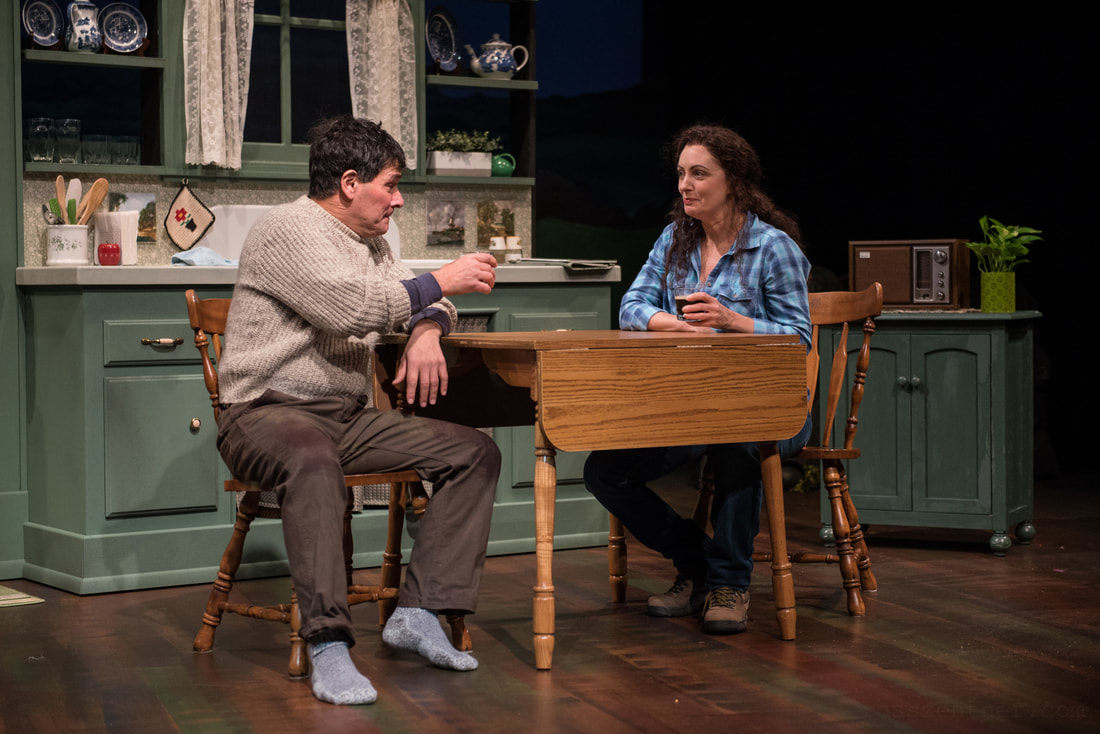
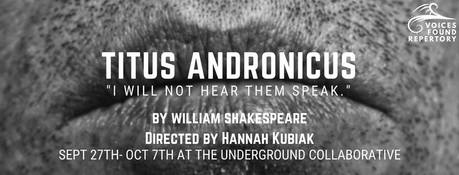


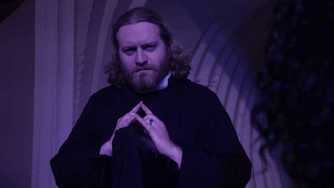


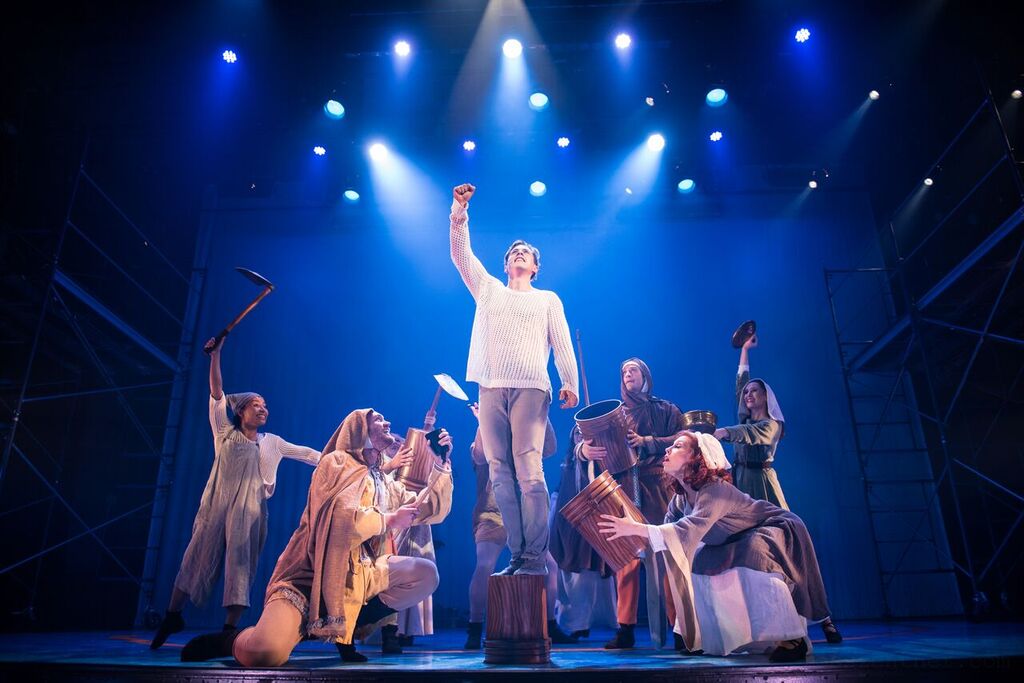

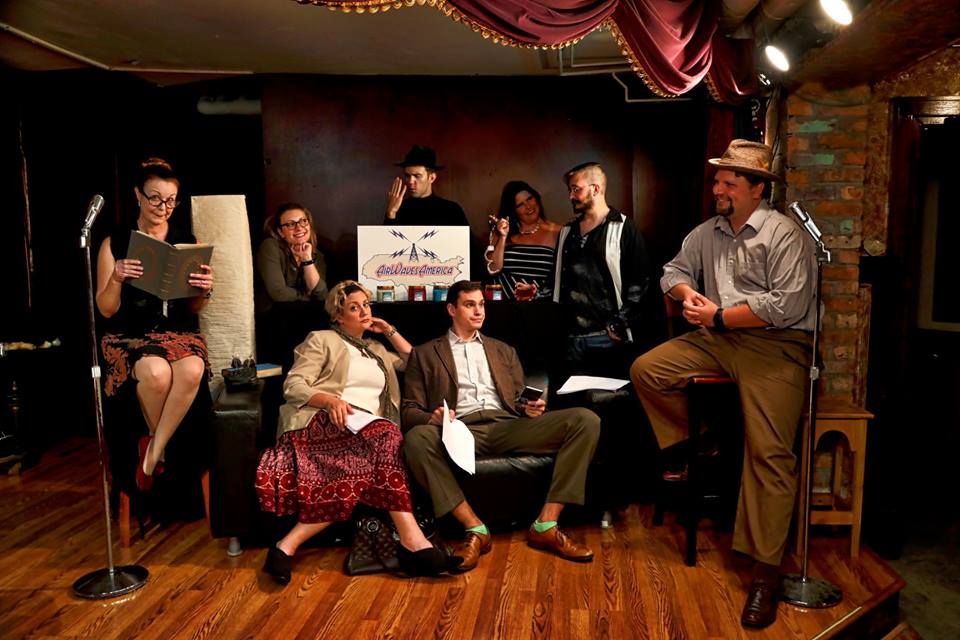
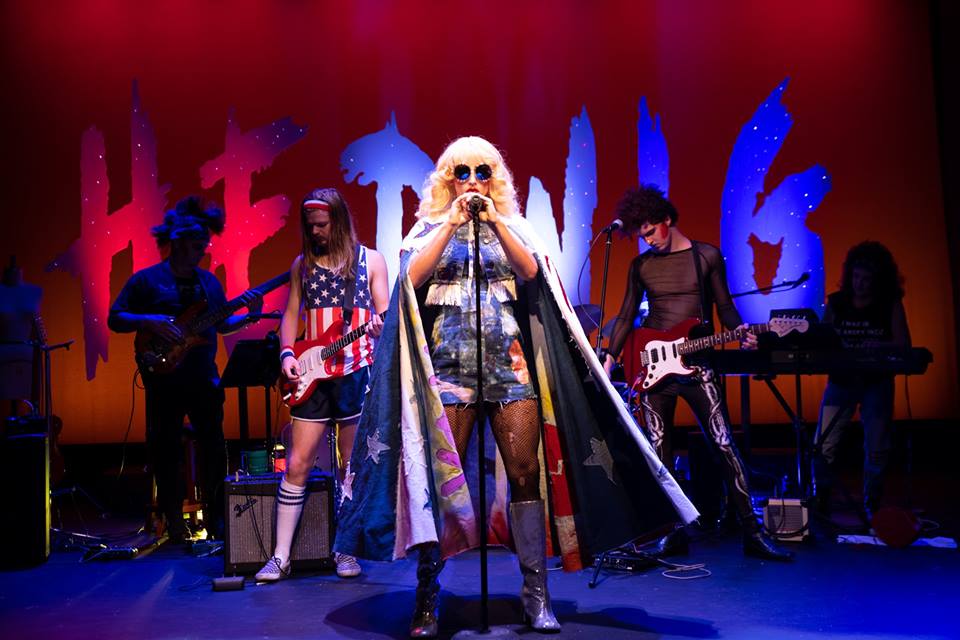
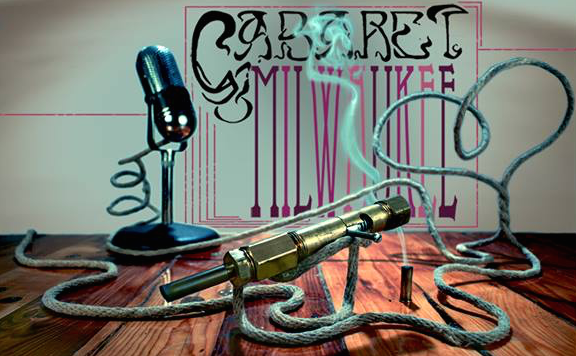
 RSS Feed
RSS Feed
